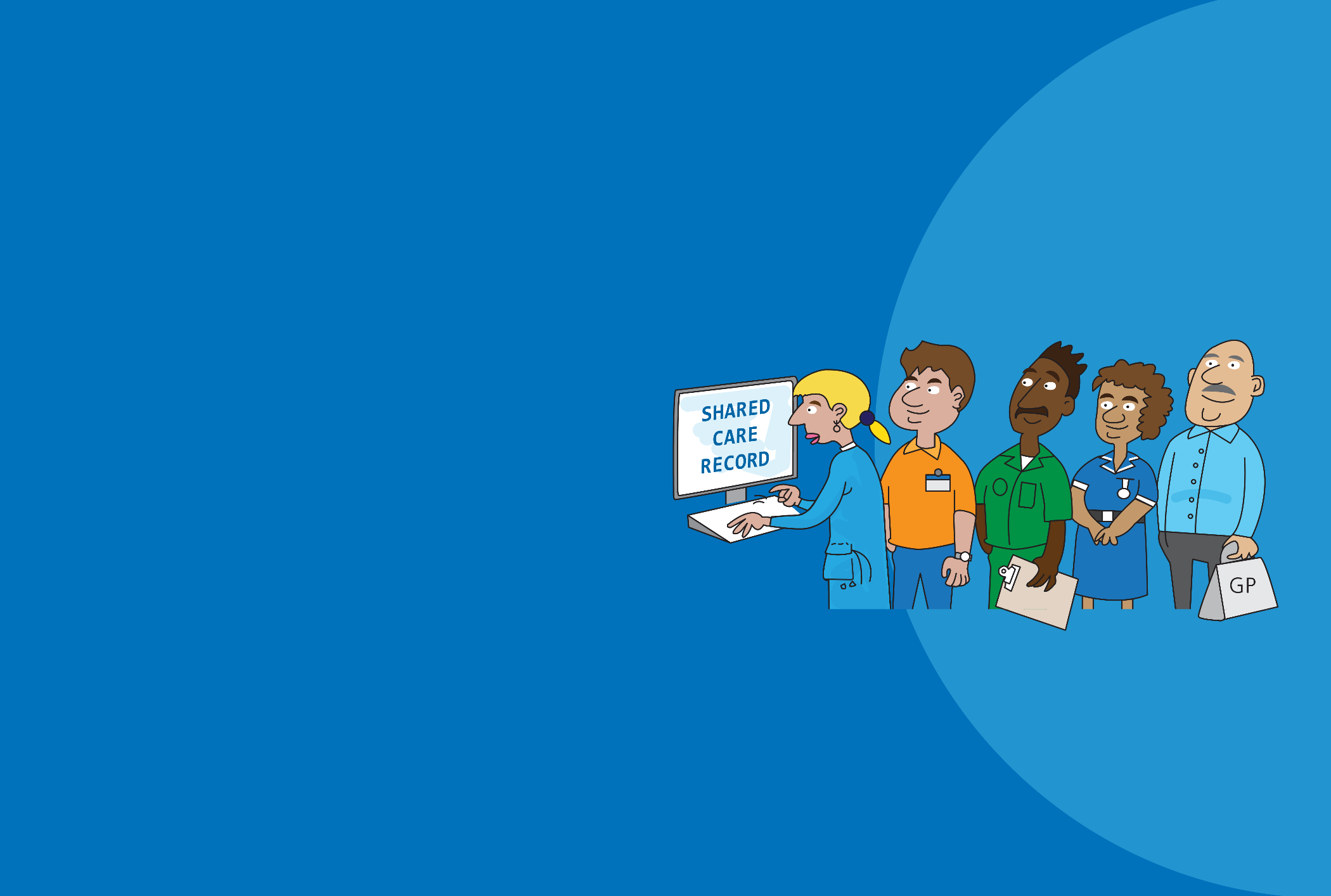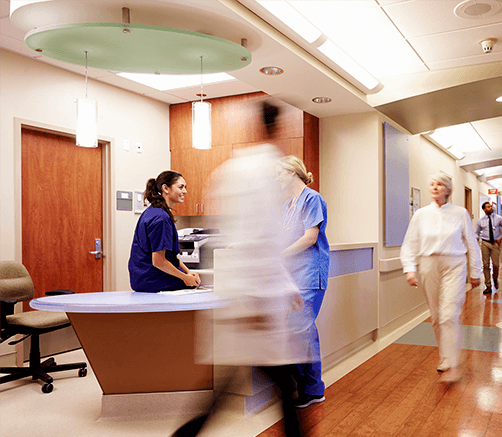Frequently Asked Questions (FAQs) about the Shared Care Record
The Shared Care Record is a way of bringing together all your separate records from the different organisations involved in your health and social care. It’s confidential and different to anything you might have heard of before. It will let health and social care professionals see relevant information about the care and treatment you’ve had across all services.
We know you only want to tell your story and share information once when receiving care from any health or social care organisation across Herefordshire and Worcestershire. That’s why we’ve developed the Shared Care Record.
Anyone registered with a GP practice in Birmingham and Solihull, Coventry and Warwickshire, or Herefordshire and Worcestershire will be included.
Health and social care professionals will be able to see your records through the Herefordshire and Worcestershire Shared Care Record. Having a more joined-up view of your information will help them give you better, safer care. Some of their administrative and secretarial staff might also be able to see information so they can support the professionals. An example would be to send you an appointment letter. All staff must follow the law on keeping your information confidential. Each time they look at your records this will be recorded to make sure they’re only looking at the right information, for the right reasons.
The organisations currently taking part in the programme are:
- GP practices in Herefordshire and Worcestershire
- Taurus Healthcare
- StayWell Healthcare
- Herefordshire and Worcestershire Health and Care NHS Trust
- Wye Valley NHS Trust
- Worcestershire County Council – Social Care
- Herefordshire Council – Social Care
- Worcestershire Acute Hospitals NHS Trust
- West Midlands Ambulance Service University NHS Foundation Trust
Health and social care organisations in the neighbouring areas of Coventry and Warwickshire and Birmingham and Solihull will also be able to view your information, if necessary, for care you receive there.
The first phase of the Shared Care Record will allow health and social care professionals to see appropriate details contained in:
- your GP practice medical record
- information from secondary care, including hospitals
- mental health and community services
- maternity records.
Being able to see this information will help them give you the best care as quickly as possible without having to make phone calls or wait for other organisations to forward details.
We’ll bring together information from GPs and allow it to be seen by health professionals in hospitals, including Emergency Departments. We’ll also add information from community and social care, ambulance and NHS 111 services.
We’ll carry on developing the Shared Care Record, allowing professionals across more health and social care settings to see information to support your care. We’ll also help services understand and find the best ways to meet people’s care needs.
Health and care professionals will be able to see appropriate information from your records.
This will mean:
- not having to repeat your details every time you need care
- better and, potentially, faster treatment as the professionals caring for you will be able to quickly see your records
- not having to explain your social care support to health professionals
- clinicians being able to see what medications you’re taking, what you’ve taken in the past, and if you have any allergies – making your treatment safer.
It will also make treatment more effective for anyone needing care for COVID-19, thanks to the fast availability of information about any pre-existing conditions they might have and their medications.
There are strict rules around how we use your information. We’ll make sure it’s managed and viewed appropriately and in line with all legal requirements, including UK data protection legislation (DPA 2018 and superseding legislation). Official inspections, or audits, will check this is the case.
The change will take place automatically when we switch on the Shared Care Record over the next few months.
You have a right to object at any time – it’s your decision.
Please think carefully before doing this. Objecting will mean the services giving you care will be unable to view your records from other services.
That could mean information that could be vital when you need health or social care support – for instance, during a visit to a hospital Emergency Department – might not be immediately to hand as a result.
If you do want to object, please visit the Right to Object page (insert link) on this website where you will find full details. If you need help, please email collaborative.care.record@nhs.net or call 0345 646 1163.
Please note, the Shared Care Record is different to anything you might have said no to before. So, if you don’t want your records to be available to view through the Shared Care Record, you’ll need to object.
If you would like this information in an alternative format (for instance, braille, audio, easy read or your spoken language) please contact a member of our team at collaborative.
The NHS and local councils in Herefordshire and Worcestershire own and are responsible for the Shared Care Record.
There are some pieces of information that won’t be available to view through the Shared Care Record. Things, for instance, such as visits to sexual health clinics, any fertility treatment records, and those about gender reassignment.
We’ll have a data sharing agreement to make sure this kind of information is not included, in line with legal and statutory requirements, and concerns around sensitivity.
They are two completely different things, and you can choose to be a part of both/one or the other/none.
The GPDPR is a national initiative for data collection for health and care planning and research. For further information, visit General Practice Data for Planning and Research - NHS Digital
The Shared Care Record is a local initiative to share information with organisations directly involved in your care. For further information visit: (insert link to Shared Care Record Home page)
You will need to talk to your GP Practice to opt out of the GPDPR. For further information and instruction please visit National Data Opt Out
If you do want to object, please visit the Right to Object page Right to Object :: Herefordshire and Worcestershire Integrated Care System (hwics.org.uk) on this website where you will find full details.
If you need help, please email collaborative.care.record@nhs.net or call 0345 6461163.
No. Opting out of the Shared Care Record WILL NOT exclude you from other integrated electronic health record systems, such as the Herefordshire One Record or the Worcestershire Integrated Electronic Health Record.
You will have to opt out of the Shared Care Record and any other integrated electronic health record systems separately.
Details of how to opt out of the Shared Care Record can be found here:Right to Object :: Herefordshire and Worcestershire Integrated Care System (hwics.org.uk)
To opt out of other integrated electronic health record systems, please speak to your healthcare provider.
Opting out of the GPDPR WILL NOT exclude you from the Shared Care Record. Your information will still be available to view in the Shared Care Record for use in your direct care.
Also submitting a Right to Object for the Shared Care Record WILL NOT opt you out of the GPDPR.
You will have to opt out of the GPDPR and the Shared Care Record separately.
If you’re registered with a GP practice in Birmingham and Solihull, Coventry and Warwickshire, or Herefordshire and Worcestershire then you will be included.
Anyone registered outside this area will need to contact their GP to see if they’re included in a different programme.
As we now have the capability to include the details of people under the age of 18, their records will also be available for health and care professionals to view through the Shared Care Record.
Yes, you have the right to object at any time if you are 16 years of age or older.
From the age of 13 to 16, we will consider your right to object if your form has been signed on your behalf by someone with parental responsibility.
If it has not, we will ask a recognised health or care professional if they consider you to be competent to make such a decision.
If you are under the age of 13, we will only consider your right to object if your form has been signed on your behalf by someone with parental responsibility.
However, we don’t recommend objecting. If you do object, each organisation will only see electronic information recorded on its own system. Anything needed from other services as part of your own, or your child’s direct care or treatment will be forwarded through traditional methods such as phone, email or letter – as it is now.
Please consider carefully before objecting as it could mean vital information about you or your child is not immediately available when either you or they need health or social care support.


